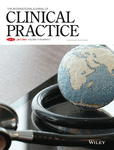COVID-19 and its effect on the provision of ophthalmic care in the United Kingdom
Abstract
The first quarter of 2020 gave light to a novel virus, Coronavirus 2019 (COVID-19), causing a pandemic of unbridled proportions. The National Health Service in the United Kingdom issued guidance to ensure that capacity was increased in acute medical settings, to prepare for the surge of COVID-19 cases. The Royal College of Ophthalmologists followed suit with guidance on the curtailment of all elective activity, aimed at protecting both patients and staff. Ophthalmology is one of the busiest outpatient specialities, and risk stratification of patients with appointments cancelled or on review lists was paramount to ensure there was no serious, permanent harm to sight. Our way of working, as we knew it, had to change in a short period of time. Local emergency eye care was changed from a walk in service, with the implementation of a strict triage protocol. Ophthalmologists, as well as Otorhinolaryngology colleagues, were identified as being at high risk of infection, due to the close proximity of clinical examination. The redesign of clinical areas to allow for social distancing, slit lamp barriers and personal protective equipment was all implemented. This time of relative pause has provided the opportunity to harness new ways of working, including the streamlining of services, reduction of backlog and the incorporation of telemedicine. Health preparedness is a new lexicon to Ophthalmology departments across the world, and it will now have to be stringently implemented in the ophthalmic setting.
DISCLOSURES
The authors declare that they have no conflict of interests and no funding has been received for this work.




